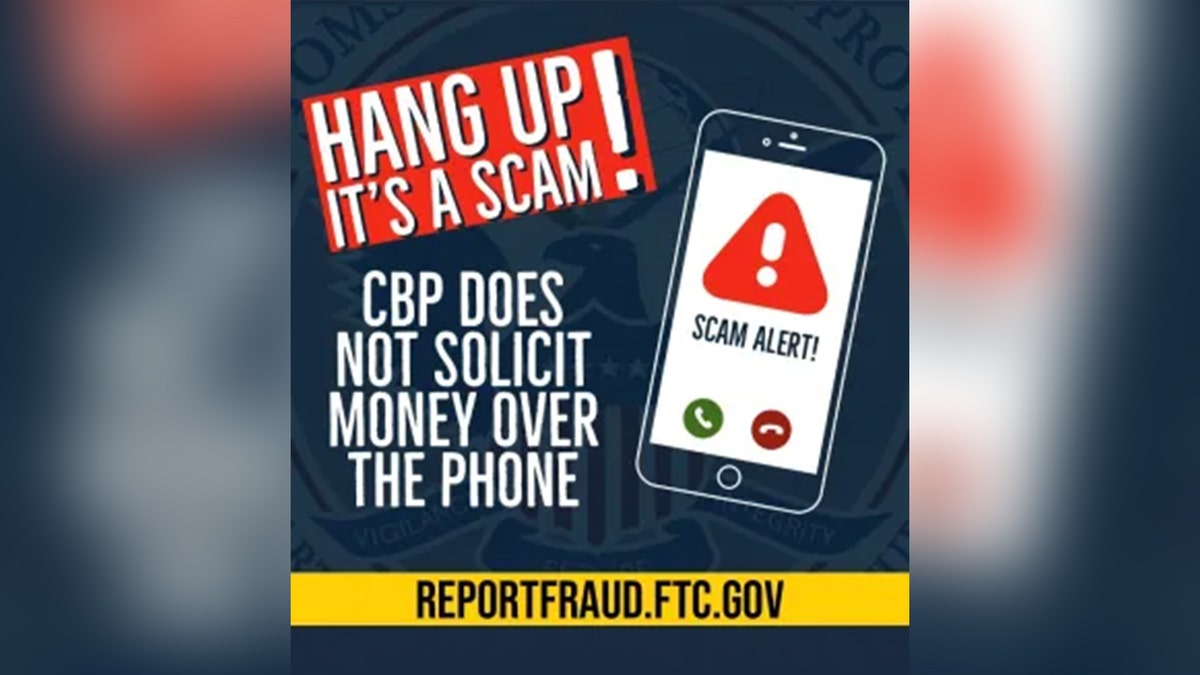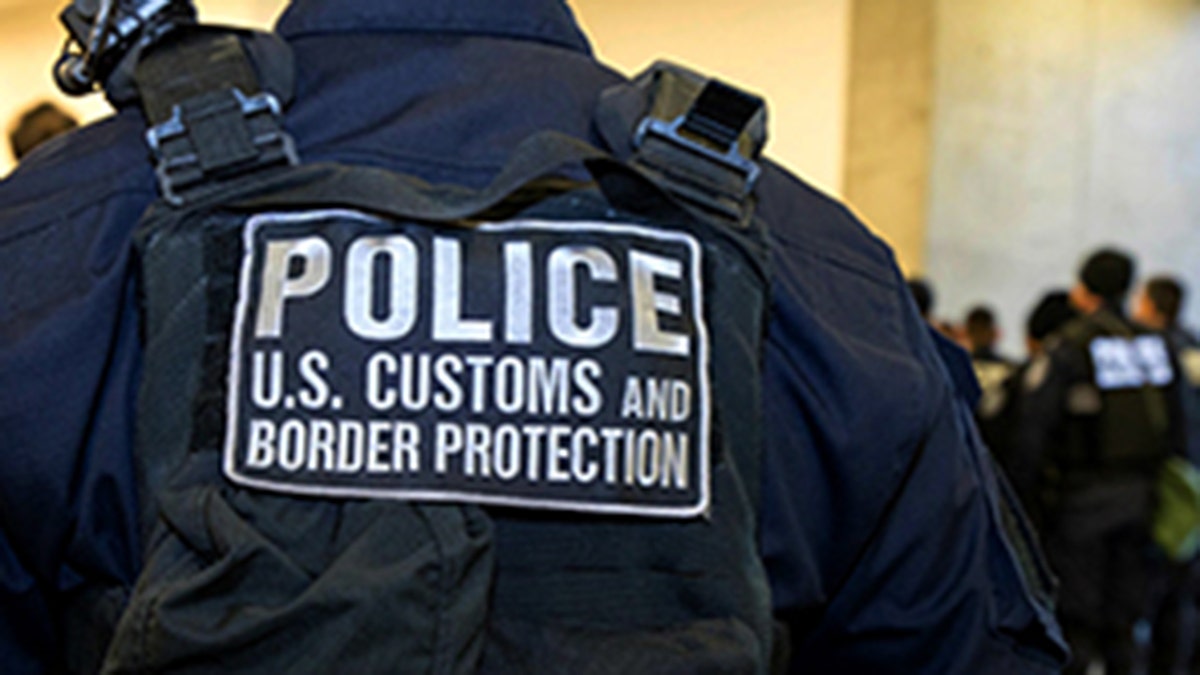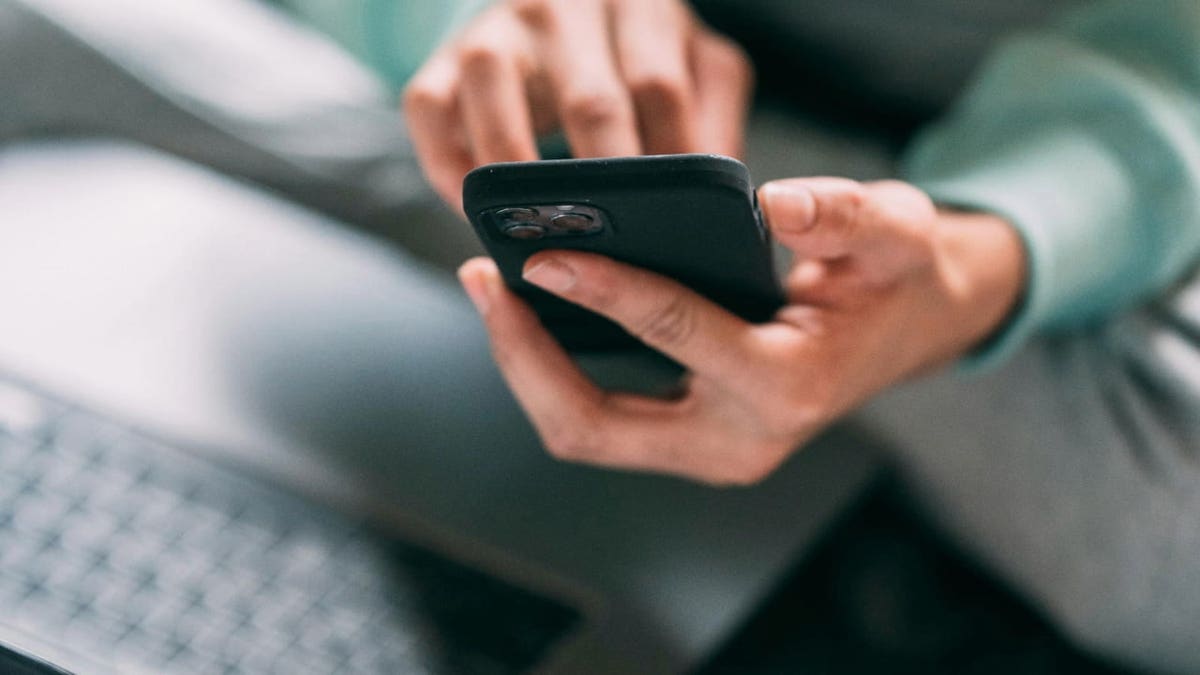U.S. Customs and Border Protection is repeating a warning about a phone scam “targeting residents nationwide to gain personal information that would bypass financial security protocols.”
The agency said in a post to X on Sunday that scammers are posing as CBP officers and Border Patrol agents while promising money for information or threatening that law enforcement is on the way.
The social media post directed to a previous warning from November that followed a “spike of phone calls from concerned citizens about scammers.”
“If CBP suspects illegal activity, we will not call a suspect or a victim requesting money or social security numbers,” CBP Houston Acting Director of Field Operations Rod Hudson said in a statement.
SUSPECT ACCUSED OF BURNING WOMAN TO DEATH ON NYC SUBWAY IS PREVIOUSLY DEPORTED ILLEGAL IMMIGRANT

U.S. Customs and Border Protection says scammers are looking for banking information while impersonating agents. (U.S. Customs and Border Protection)
“To be clear, CBP will not make telephone calls threatening citizens that law enforcement is on the way or promising money for information. Anyone receiving a call from U.S. Customs and Border Protection about a shipment of drugs or money should recognize that it is a scam regardless of how authentic the caller may sound,” the statement continued.
Scammers even went as far as providing an actual CBP employee’s name and phone number available on the internet for the victim to identify, the agency says. Some went so far as to give their targets fake case and badge numbers, according to CBP.
NYPD ARRESTS MIGRANT WHO ALLEGEDLY SET WOMAN ON FIRE ON SUBWAY TRAIN, WATCHED HER BURN TO DEATH

U.S. CBP says scammers are posing as employees over the phone to get a target’s financial information. (CBP)
The way some of the scams operated was with a pre-recorded message that stated something along the lines of a “shipment of drugs or money with your name on it and has been intercepted,” before the target is asked to press 1 and be connected to a live person.
Residents on the receiving end of a call known as a phishing attempt should not provide the caller with any information.

The type of scam CBP is referring to over-the-phone is known as phishing. (Kurt “CyberGuy” Knutsson)
CLICK HERE TO GET THE FOX NEWS APP
Phone scams can be reported to the Federal Trade Commission here.
Four main points CBP reminds people of are:
- CBP won’t call out of the blue with promises of money or threats.
- CBP never uses gift cards, cryptocurrency or wire transfers.
- Do not trust caller ID.
- Check with CBP if you are unsure about whether a call or email is real by typing the agency name into a search bar and clicking on its website to find contact information.
